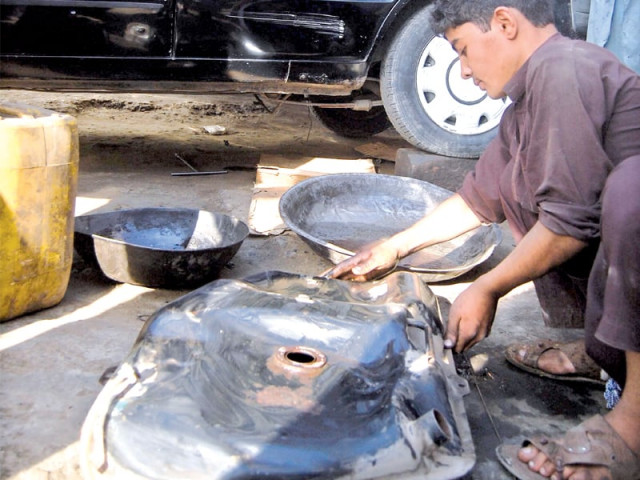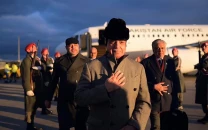Fuel shortage: Petrol dries up as demand increases threefold
As most transporters chose to stay off the roads, taxi drivers demanded exorbitant fares.

Fuel shortage: Petrol dries up as demand increases threefold
“I never thought I would have to search for petrol in the capital; this government has deprived the nation of all basic necessities of life,” said Arif, a businessman.
Nasir along with his elderly mother came all the way from Khanna Pul to Aabpara and wanted to go to Embassy Road to see one of his uncles who had a stroke last night. But he was unable to find a taxi that would ask for a reasonable fare.
“The Embassy Road is just few kilometres from here. Taxi drivers are demanding Rs200 which I cannot afford as I have to go back as well,” he explained. They had to settle for walking the entire length, a few kilometres, in the scorching heat.
President Twin Cities Transport Union and General Secretary Mutahidda Transport Malik Sultan Awan said the CNG strike has badly affected their business. He said there are normally about 6,000 vans, 4,000 taxis and 250 coasters on the roads in the twin cities; but due to this strike only a third of the public transport is operating.
Awan said if the strike does not end in a few days, the transporters will also announce a strike.
Malik Ishaq, manager at a petrol pump in the capital, said on an average day a petrol pump sells 5,000 to 6,000 litres of petrol, but due to the CNG strike, consumption has increased to 16,000 litres. “Therefore, it has become difficult to meet the demand,” he said.
For taxi driver Muhammad Aleem, Saturday was the fourth consecutive day he was forced to stay at home, as his old Suzuki FX runs on CNG and not on petrol. He cannot afford to reconvert his taxi to run on petrol which costs more than Rs5,000, he said.
“I can only provide three meals a day to my family if I’m able to make some money every day. I’m depressed as this is the beginning of the month and I have to pay my children’s school fees, utility bills apart from other expenses, but I do not know how I will manage,” he said.
Behroz Khan an owner of a workshop based in Pindora said three to four cars a day were being converted from CNG to petrol since the strike was announced. It costs around Rs4,000 for a simple conversion but Rs10,000 if the petrol tank, carburettor along with the supply pipes have to be changed, he added.
The the All Pakistan CNG Association Chairman Ghayyas Paracha said, “We want to call off the strike, but unfortunately the government is not paying any heed to our woes.”
Published in The Express Tribune, June 10th, 2012.












1724319076-0/Untitled-design-(5)1724319076-0-208x130.webp)






COMMENTS
Comments are moderated and generally will be posted if they are on-topic and not abusive.
For more information, please see our Comments FAQ